Are you looking for the best social media marketing tools for your small business?
Well, you’re in the right place!
In this blog post, I’ll go over the tools I’ve found to be incredibly useful for social media marketing. I’ll cover everything from coming up with content ideas to speeding up the content writing, and how to schedule them so you’re never stuck wondering what to post next.
After using these tools at my former digital marketing agency and currently using them at The Marketing Project, I’m confident they will transform the way you manage your social media.
I’ll go over a mix of free and paid options that are easy to learn, great to get started, and guaranteed to save you a ton of time.
With that out of the way, let’s jump right in!
More...
Tools Summary
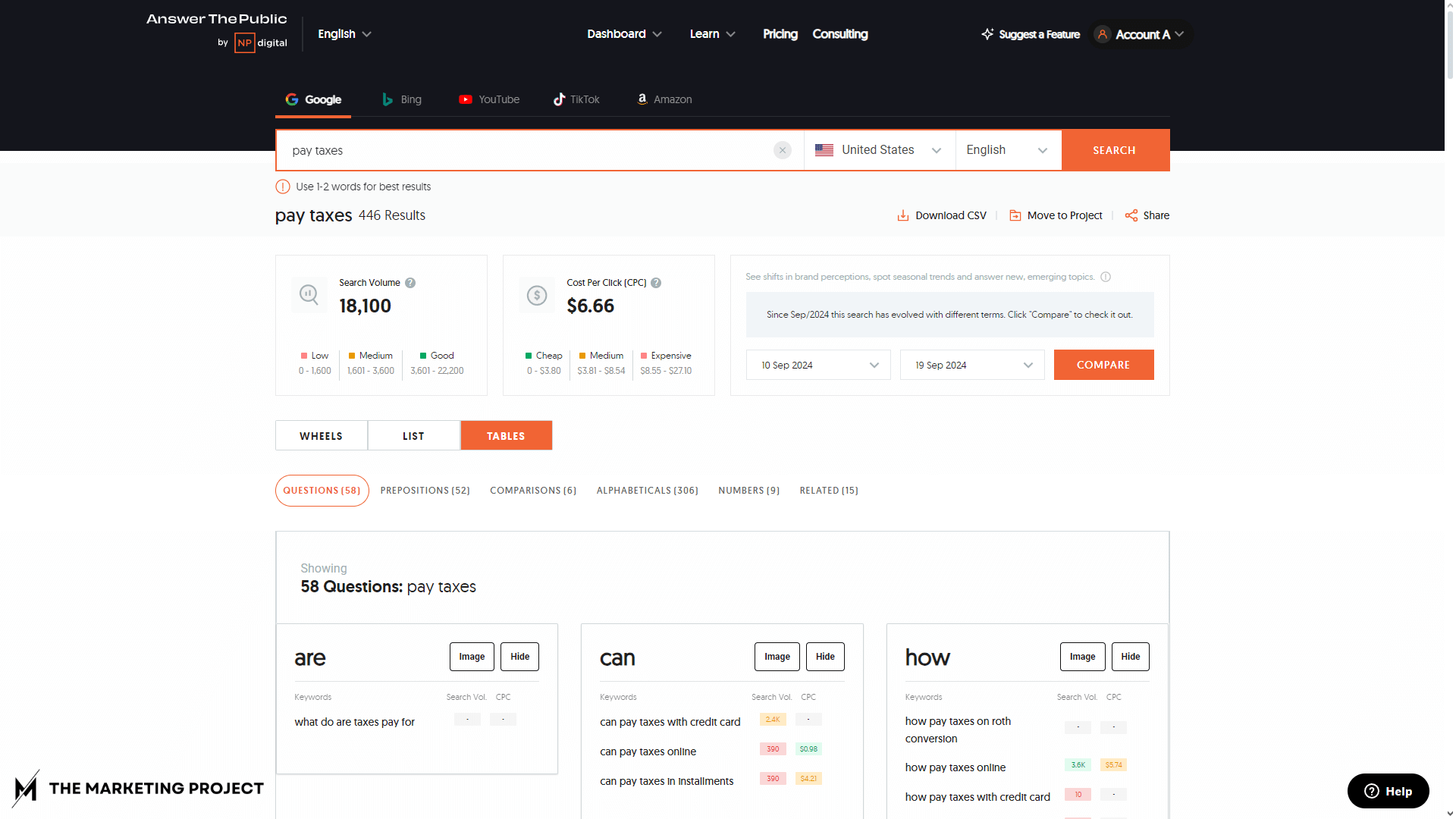
Let me ask you this: have you ever found yourself wondering.
We’ve all been there.
It’s tough to figure out what your audience wants. That's precisely why it’s essential to do research—it helps you find out what topics people care about and the kinds of questions they’re asking.
For that reason, I recommend checking out Answer The Public.
Answer The Public is a search listening tool designed for market, customer, and content research. The way Answer The Public works is, they look at what people are searching for in platforms like Google, Bing, YouTube, TikTok, and even Amazon, and they give you a list of search terms people use to find solutions to their problems.
For example, let’s say you run an accounting business and you want to know what kind of content you should create for your blog, YouTube channel, and other social media platforms. But you don’t know where to start.
Here’s what you do: think of a topic people in your industry care about—like, let’s say, paying taxes.
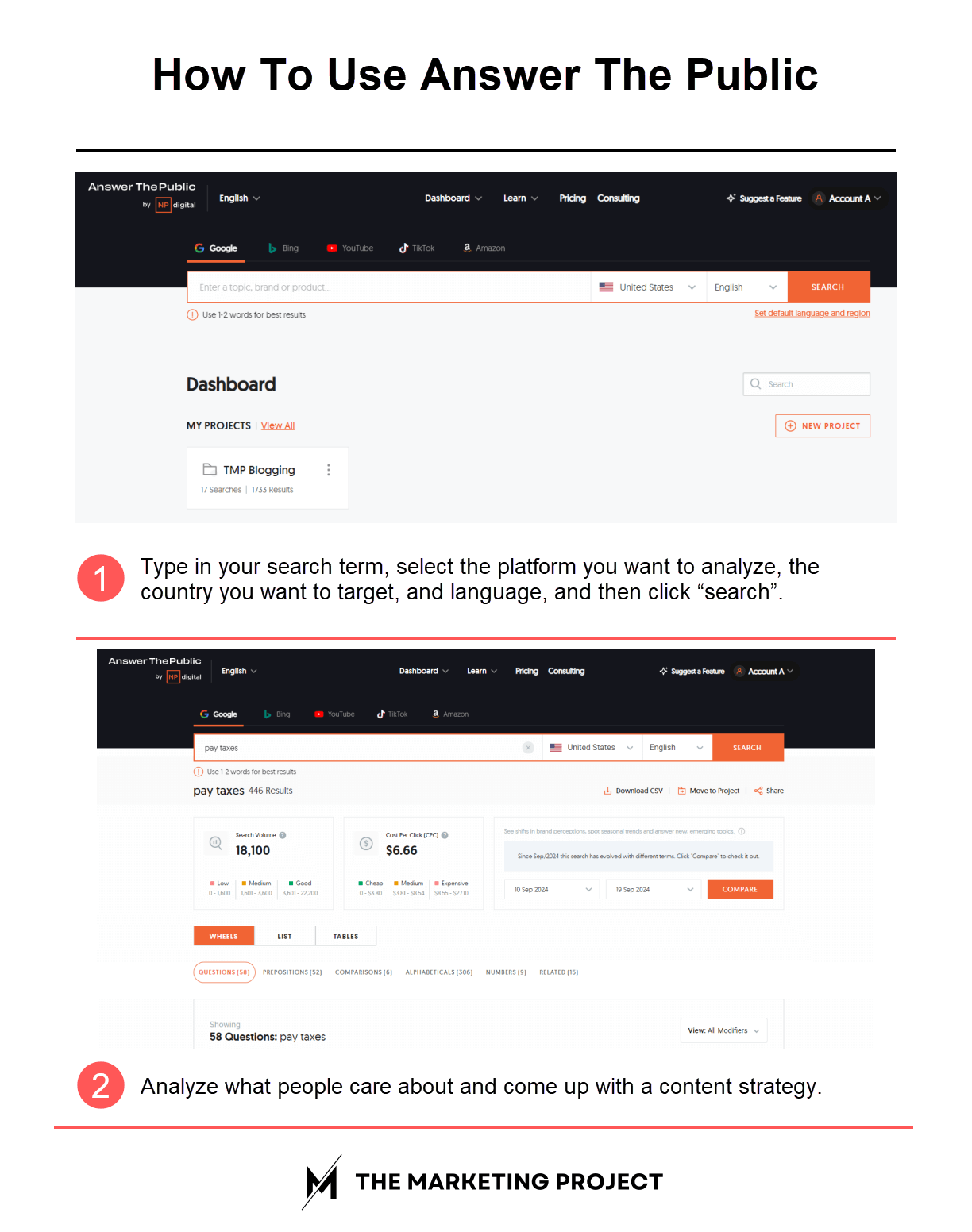
Then, you go to Answer The Public, type in “paying taxes,” select the platform you want to analyze, the country you want to target, and language, and then you just click “search”.
Answer The Public will provide you with a list of topics people are actively searching for in Google, Bing, YouTube, or any platform you choose when doing your research.
After that, you just need to analyze what people care about and come up with a content strategy. For example, in my research, I typed in “paying taxes” and found searches like:
Do you see where I’m going with this?
These are golden opportunities to create content that answers people’s questions. If your business offers services related to these topics, you can even pitch them as part of the solution.
So, go ahead. Check out Answer The Public. Trust me, it’s a game-changer for getting those content ideas rolling!
Rytr
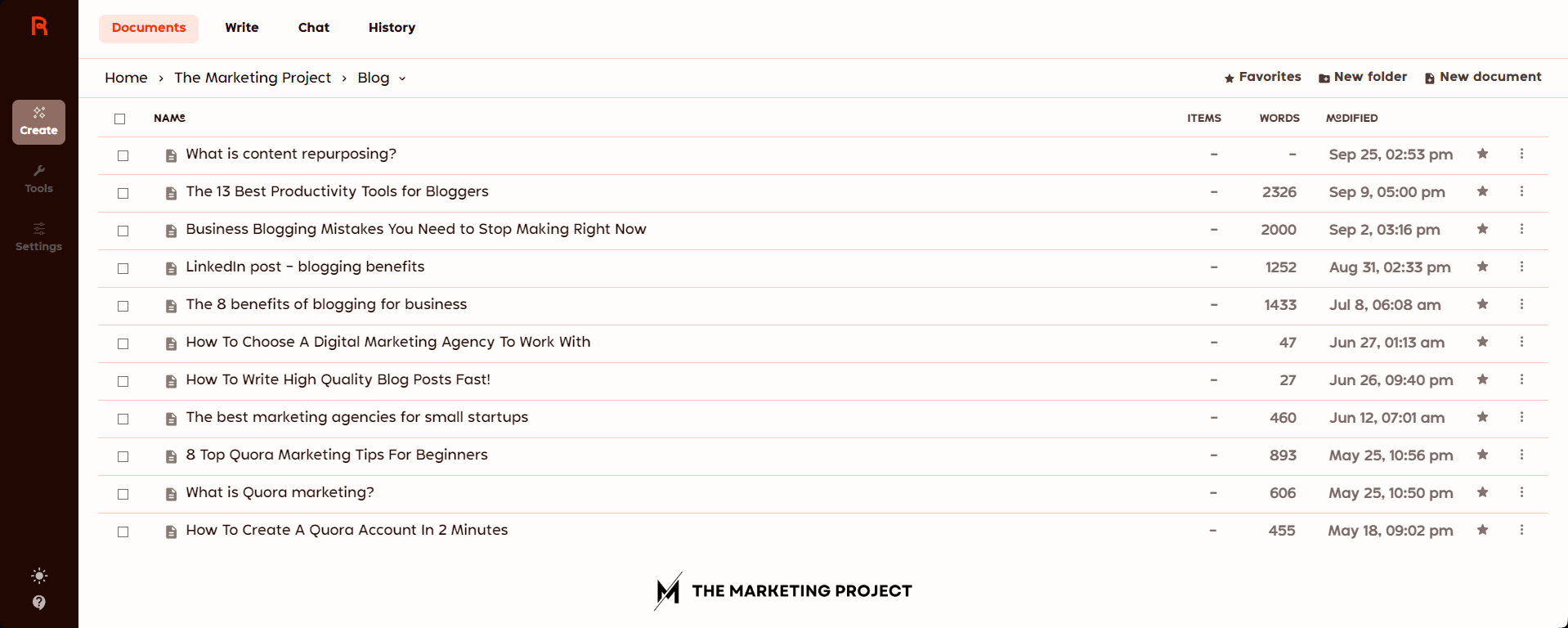
Let’s be honest, one of the biggest headaches for small businesses today is creating content regularly—especially when budgets are tight.
You need a tool that can help you generate engaging posts, grow with your business, and adapt to your changing needs.
Imagine having a writing assistant that can generate blog content and social media posts in seconds, allowing you to focus on strategy and engagement instead of getting stuck in the details.
That’s where Rytr comes in. Rytr is an AI writing assistant that lets you focus on the bigger picture—like your strategy and connecting with your audience—instead of worrying about what to write.
And what allows for that to happen is creating custom use cases and your own tone of voice. If you’re concerned it might sound too robotic, don’t be. It learns from you—your style, your unique voice, your go-to phrases—and it uses that to write content that feels like you wrote it.
That’s one of the things that makes Rytr so valuable for creating social media content. It’s being able to create high quality content with little effort because you’ve already done most of the ground work by establishing your tone and style.
Let me give you a quick example.
Let’s say you already have a blog and want to repurpose that content into LinkedIn posts. Here’s how easy it is with Rytr:
That’s it!
It’s a simple, three-step process that’s easy to repeat and doesn’t take much time.
If this sounds like something you would benefit from, give Rytr a shot. It’s one of the best AI writing assistants I’ve used, and I’m sure you’ll find it useful.
Claude
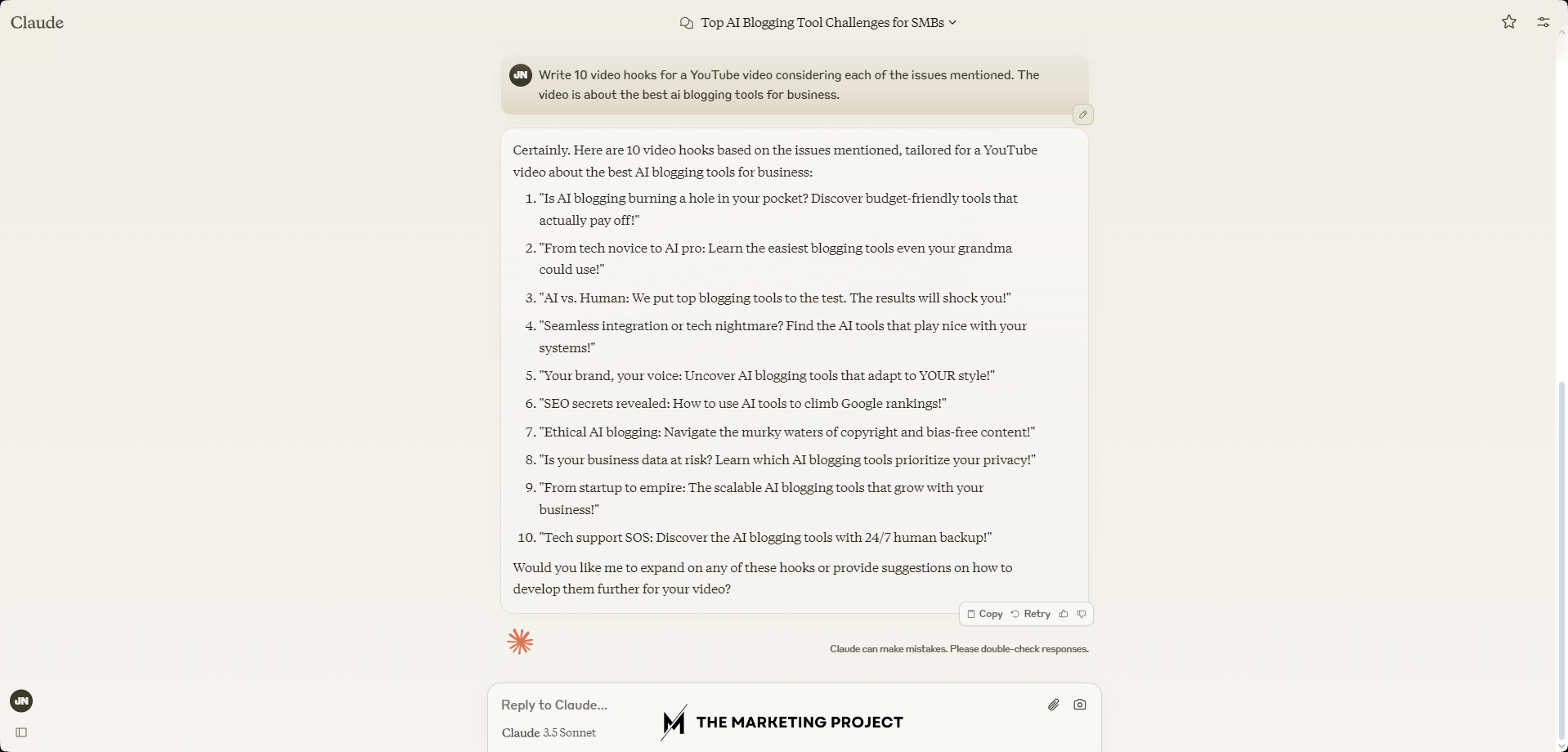
Claude is an AI assistant that helps you perform tasks based on specific inputs. In a way, it’s similar to Rytr, but the main difference is in how much data you can train its models with.
While Rytr gives you limited space to train your models—about the length of one blog post—Claude offers a 200,000-token content window—about the same as a 500-page book.
This means you can feed it significantly more information, leading to better quality content and the ability to handle more complex tasks.
So, if you’ve got a lot of content already, and you need a tool that can help you produce high quality content fast, check out Claude.
Recurpost
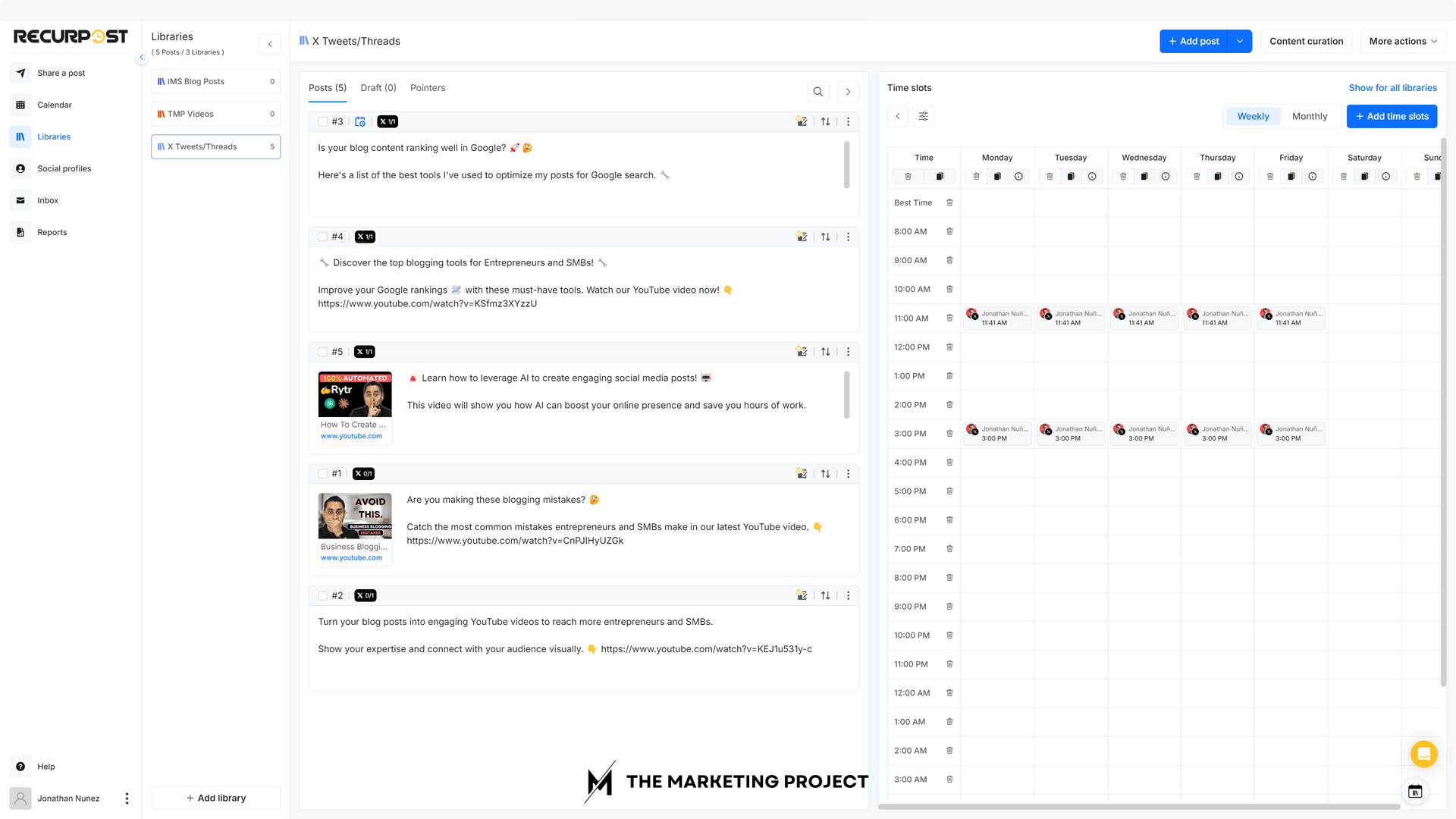
Recurpost is a social media management tool that ensures businesses always have something to share on social media without having to create new content all the time.
Here’s how it works:
You create content libraries with updates, and Recurpost drips that content to your social media channels on autopilot.
What I love the most about it is that it’s very easy to use. You don’t need to waste a ton of time figuring out how to use it. They have many guides to walk you through everything you need to know.
So, if you’re like me and don’t want to spend too much time scheduling content for your social media, definitely check out Recurpost. It saves me a lot of time every month, and I bet it’ll do the same for you.
Buffer
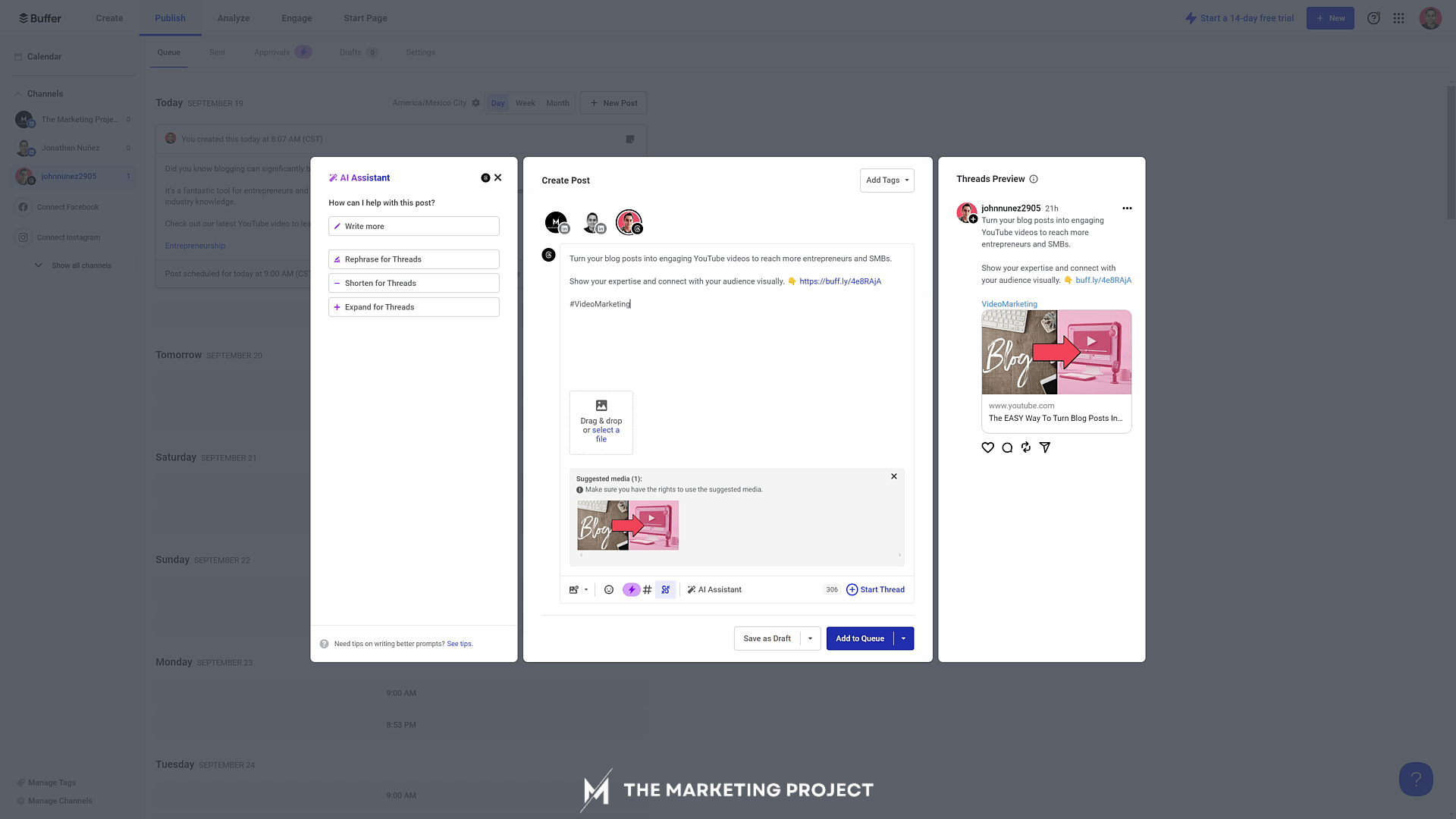
Buffer is another awesome social media management tool that makes it easy to schedule and manage content for social media.
The main difference between Buffer and Recurpost is that Buffer doesn’t rely on content libraries to drip-feed posts. Instead, Buffer uses specialized AI models to help you create tweets, threads, LinkedIn posts—basically anything you need for your social profiles.
Another feature I love is “Create”. It’s like a built-in note-taking app where you can store all your content ideas. What’s even better is that your whole team can access those ideas and turn them into posts right away. It’s quite handy for team collaboration.
And if you’ve got a lot of conversations happening around your business, Buffer allows you to engage with your audience directly from its dashboard. It pulls together all the conversations happening around your content, products, and services, so you can respond without jumping between platforms.
I personally don’t use that feature because we don’t manage social media that way, but if you have a busy social media presence and need a centralized dashboard to help you stay on top of customer interactions, Buffer’s definitely worth a try.
VidIQ
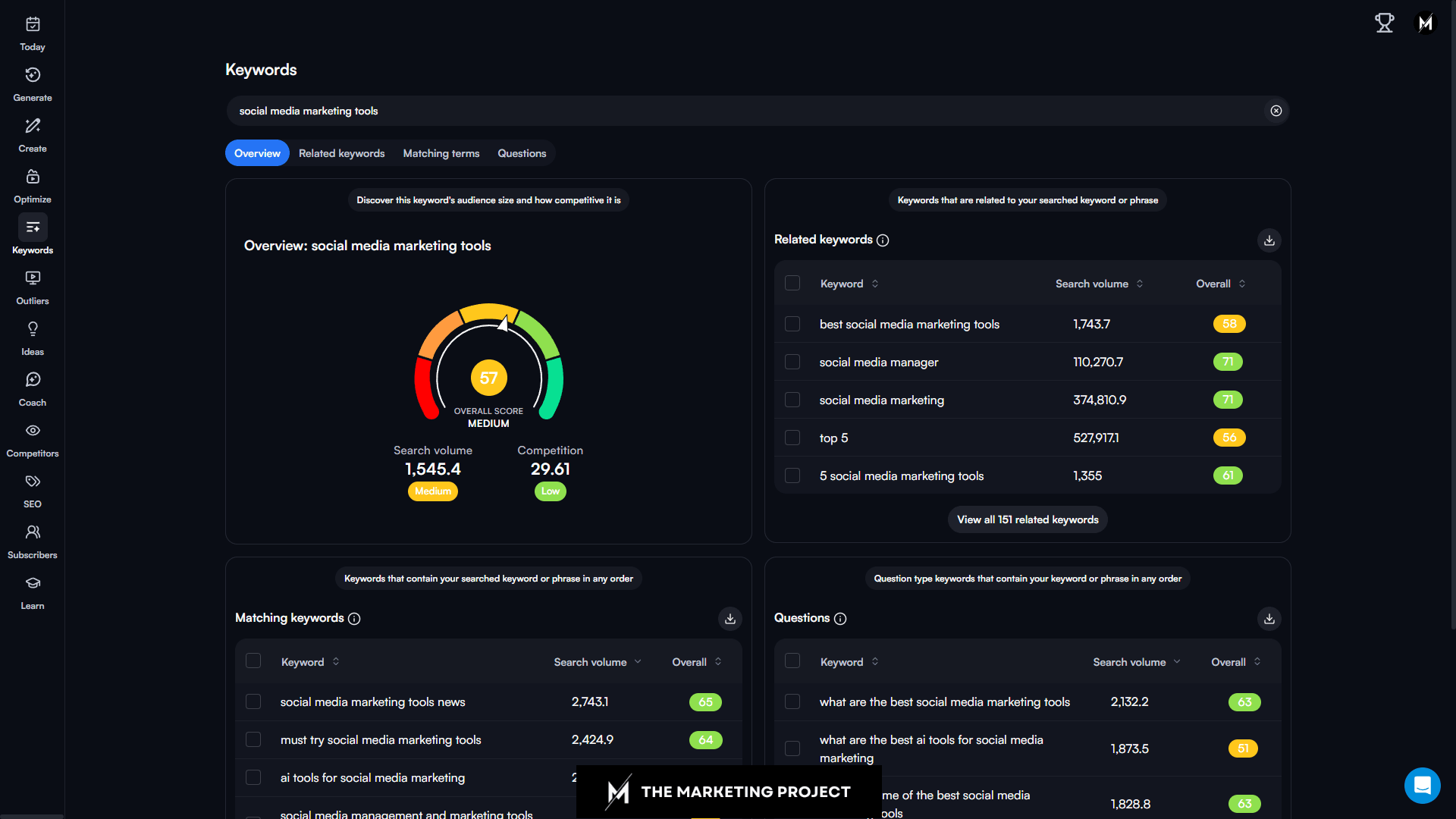
The next tool is VidIQ, and honestly, there’s so much you can do with it so I’ll focus on what I’ve found most useful.
One of the things you can do with VidIQ is keyword research. It helps you find keywords related to your audience, determine search demand, and come up with content ideas.
This is particularly helpful if you’re stuck on what videos to make— it’ll give you plenty of ideas for future content.
Another thing you can do is ask their AI to come up with title ideas for your YouTube videos. Here’s how it works:
It dives into your channel’s analytics to see which titles have performed best, then suggests new, optimized titles for your next video. This helps you get a better feel for your audience and make sure your titles grab attention.
So, if you’re looking for a tool to grow your YouTube views and create better videos, check out VidIQ. It’s the best YouTube marketing tool I’ve used for keyword research, content optimization, and ideation.
Databox
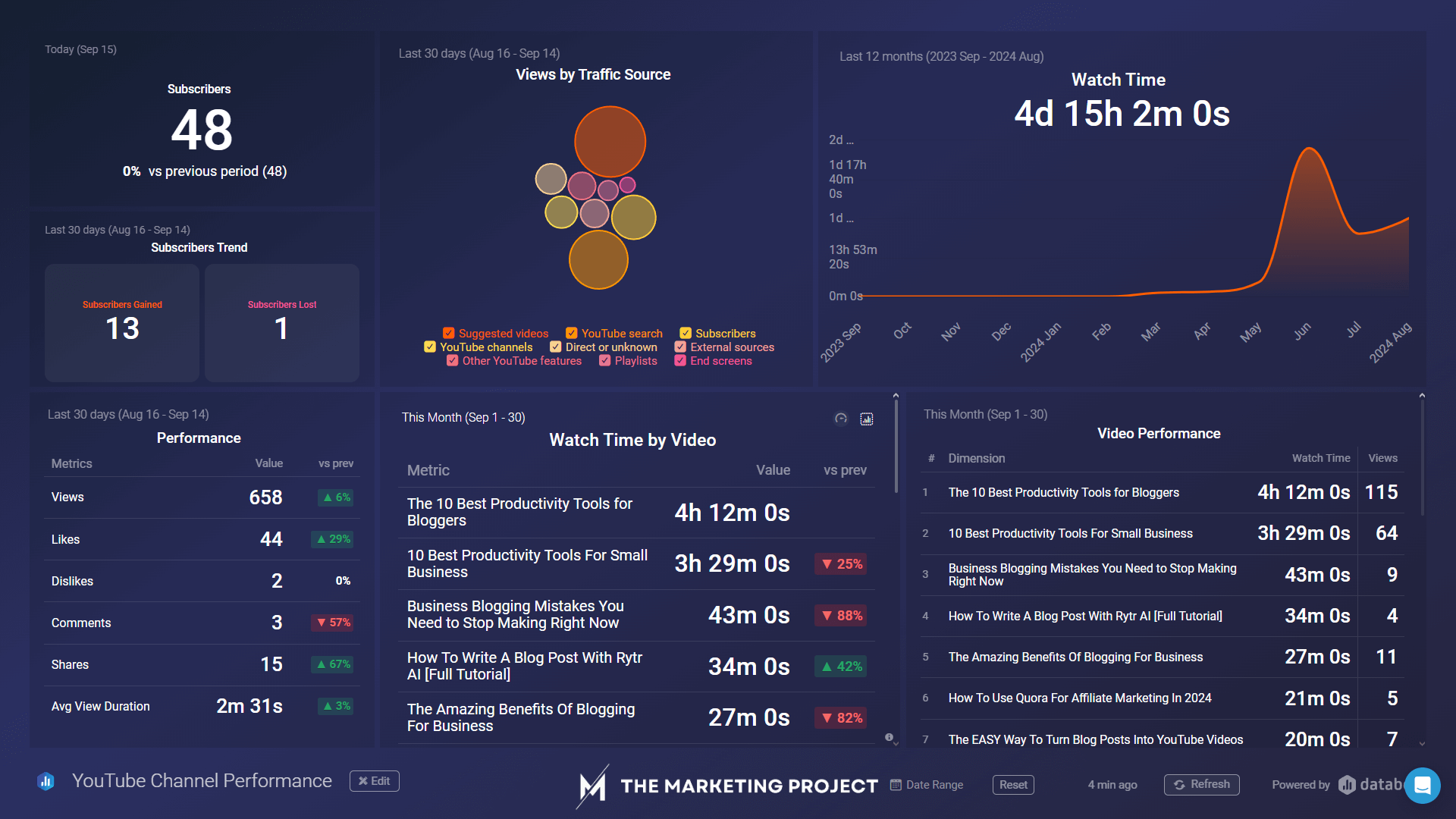
Databox is a platform that lets you connect your social media, Google analytics, email marketing, and other platforms to create personalized analytics dashboards.
One thing I absolutely love doing is using one of their many templates to build custom dashboards. It saves me a lot of time and gives me instant access to the data I need.
I rely on these dashboards to quickly see if we’re hitting our KPIs and goals, or if there’s room for improvement.
Also, Databox has a mobile app, so you can keep track of your metrics even when you’re on the go.
Honestly, Databox is one of the best and easiest analytics tools I’ve ever used. If you are the kind of person who isn’t very technical but still wants to visualize data, then check out Databox. I’m sure you’ll find it useful.
Canva
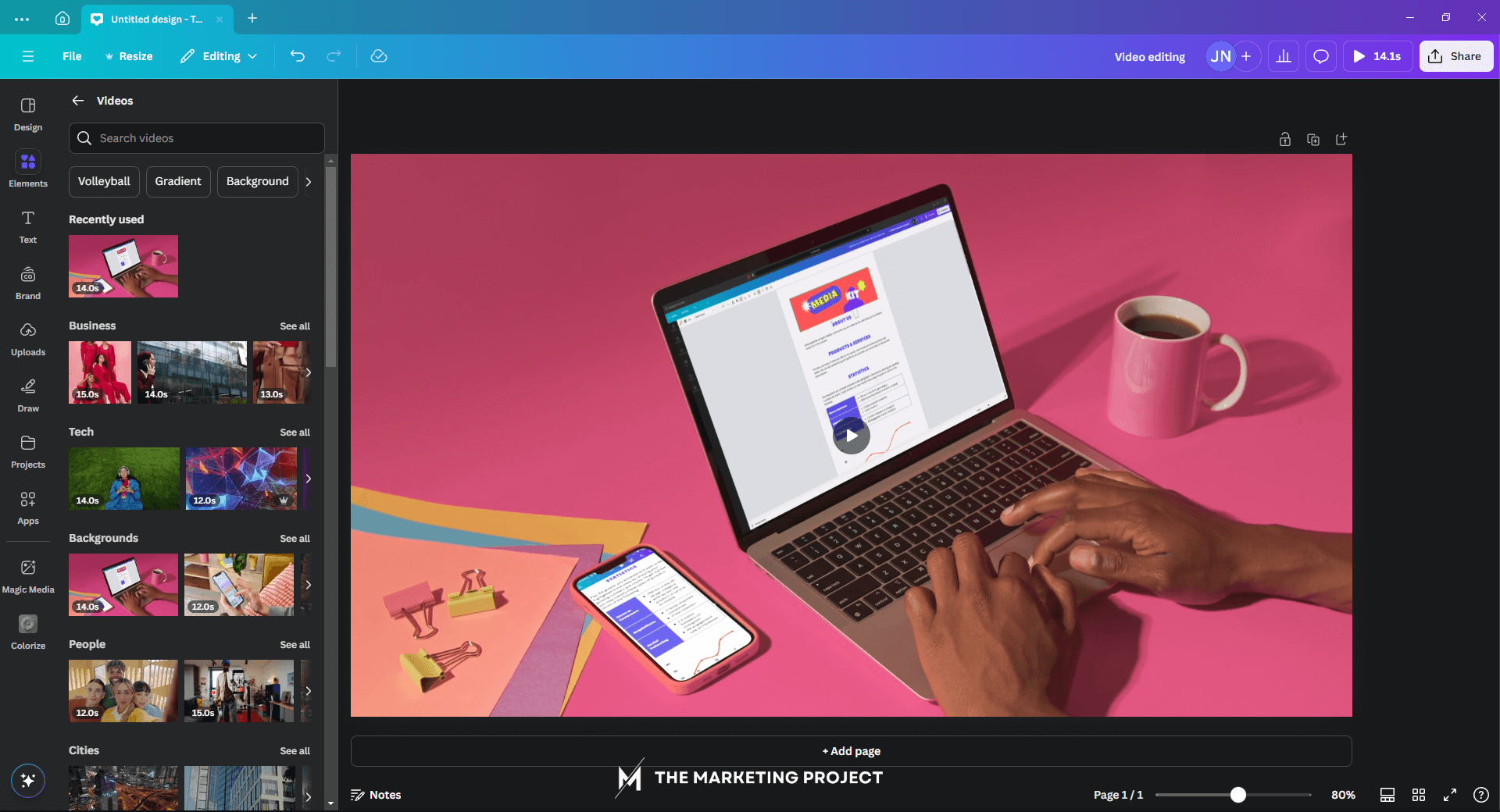
This is my go-to tool for creating professional-looking designs. Essentially, Canva is an online graphics design platform that helps businesses create stunning visuals for social media, presentations, promotional merchandise, and websites.
Now, I want to highlight the “professional-looking designs” part. Canva isn’t professional-grade software like Photoshop or Affinity Designer. It’s simple drag-and-drop software that anyone can use, even if you have zero design experience.
That’s what I love about Canva. It’s simple, but still lets you create beautiful, complex designs.
They offer tons of professionally made templates you can customize in no time to create your own designs.
Another cool benefit is the ability to create teams, so you can easily collaborate with others in your business. Plus, you can store your media kit for quick access to assets like your logos and fonts.
So, if you’re like me and haven’t taken a single design course, and you don’t know how to use design software, then check out Canva. It will make creating visuals for social media so much easier.
DaVinci Resolve
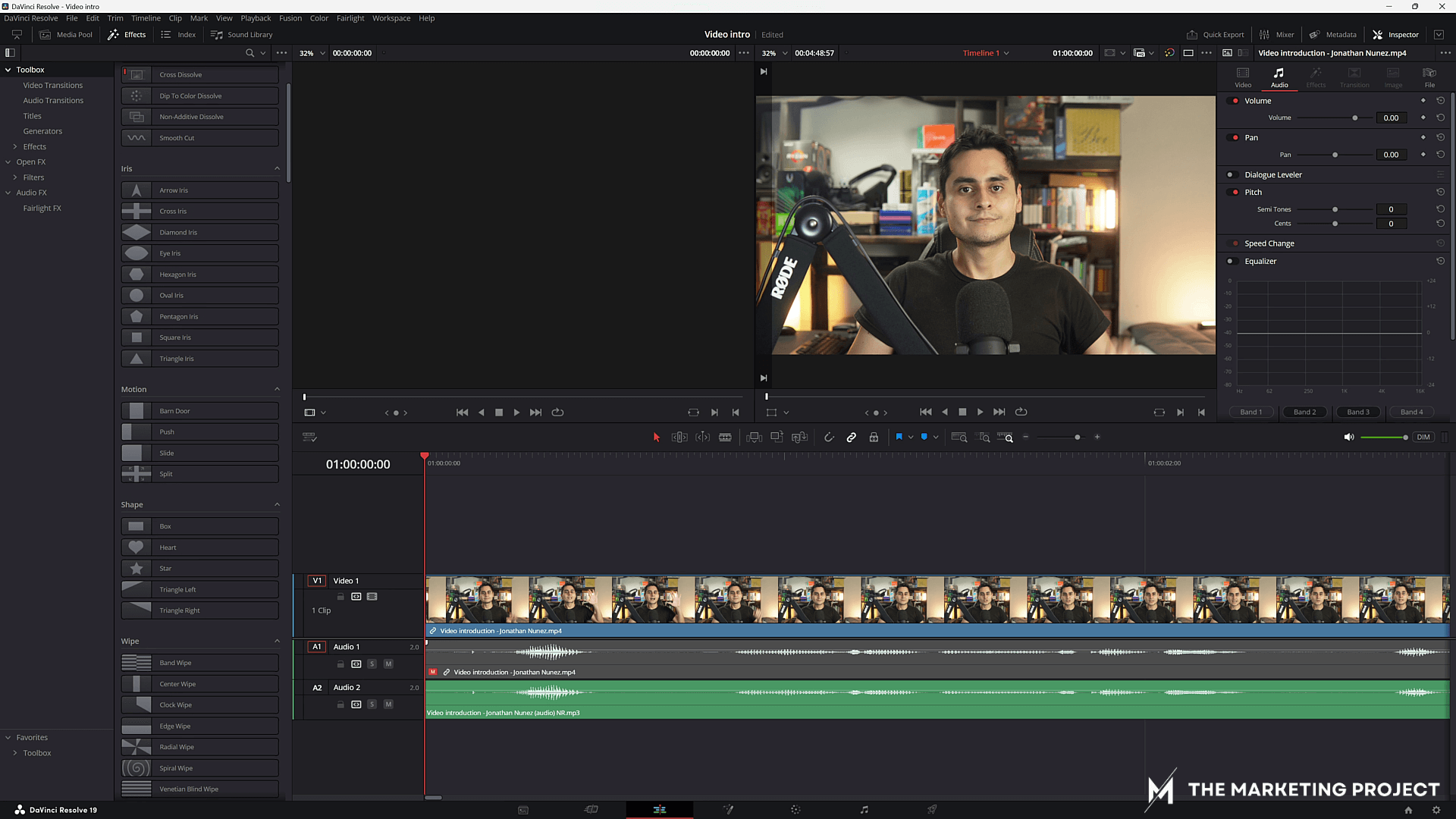
DaVinci Resolve is professional editing software that allows you to color grade, add effects, and add and edit audio.
I love DaVinci Resolve because of how simple it is to use. Honestly, I was surprised by how quickly I got the hang of it and started editing our YouTube videos, even though the dashboard looked a little intimidating at first.
They offer plenty of free effects, the timeline is straightforward, and they have tons of tutorials you can watch or read (whatever you prefer) for quickly picking up their software.
One feature that’s perfect for businesses is the ability to collaborate with other editors, colorists, VFX artists, and sound engineers all at once. Everyone can work on the same project from anywhere in the world.
Now, I personally haven’t used this feature since we only have one person editing our videos, but the fact that this is even an option is incredible. I don’t know of any other software that offers this level of collaboration.
Notion
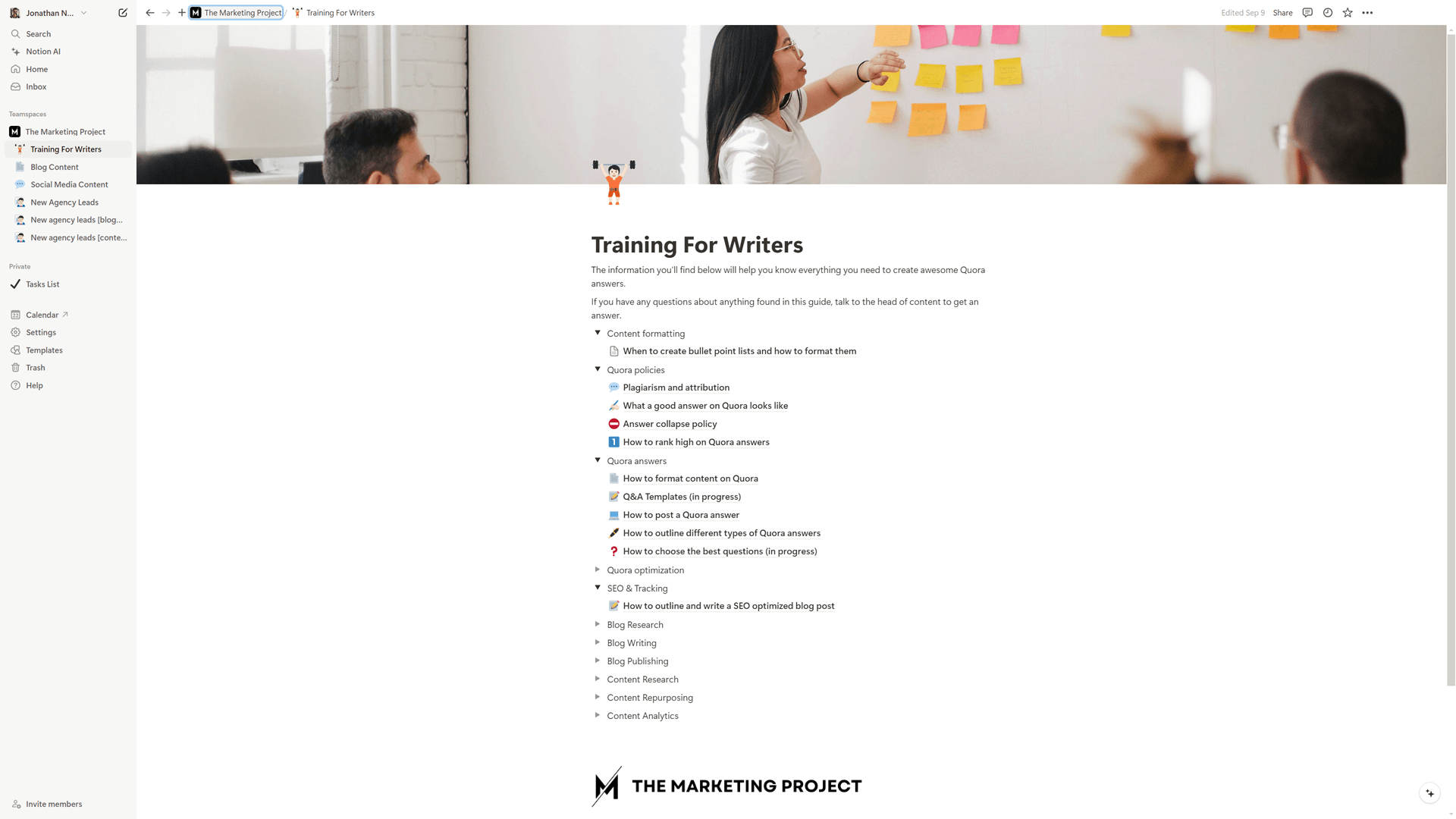
Notion is a versatile workspace that acts as a centralized platform for all your work-related needs. You can create anything from notes and to-do lists to full-blown knowledge bases and even complex databases.
What I love most about Notion is how customizable it is—you can set up your workspace to match your workflow perfectly.
I've used Notion for a variety of tasks, including creating content calendars, managing to-do lists, writing blog and social media posts, and even saving content for onboarding new writers.
It’s honestly one of the best tools I’ve used for collaborating with teammates and making sure we have everything in one platform so the right people can access the information they need.
My closing thoughts
Here’s the deal: there are literally thousands of social media marketing tools you can use for your business, but these are the ones that have helped me the most in achieving my business goals.
I encourage you to check them out. Most of them offer free versions, so you’ve got nothing to lose. Try them out and see if they’re a good fit for you and your business.
Also, if you’re interested in checking out any of the tools, be sure to use the links above. They’ll take you to the right pages.
